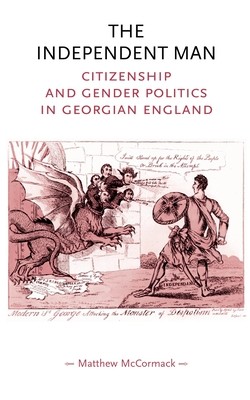
- We will send in 10–14 business days.
- Author: Matthew McCormack
- Publisher: Manchester University Press
- ISBN-10: 0719070554
- ISBN-13: 9780719070556
- Format: 14 x 21.6 x 1.3 cm, softcover
- Language: English
- SAVE -10% with code: EXTRA
Reviews
Description
Independence' was an important ideal for men in Georgian England. In this period, however, the word meant much more than simply the virtues of self-sufficiency and impartiality. Most people believed that obligations absolutely compromised freedom and conscience, whereas 'independence' was associated with manly virtue and physical vigour. Fundamentally, the political world was thought to consist of 'independent men', exercising their consciences and standing up for the general good. As such, Georgians thought about political action and masculine virtue very differently to the ways in which we do today.
In study, newly available in paperback, Matthew McCormack establishes the links between the histories of masculinity and politics, highlighting the centrality of 'manly' ideals in the political world and - conversely - the role of politics in the operation of gender ideology.EXTRA 10 % discount with code: EXTRA
The promotion ends in 16d.05:24:18
The discount code is valid when purchasing from 10 €. Discounts do not stack.
- Author: Matthew McCormack
- Publisher: Manchester University Press
- ISBN-10: 0719070554
- ISBN-13: 9780719070556
- Format: 14 x 21.6 x 1.3 cm, softcover
- Language: English English
Independence' was an important ideal for men in Georgian England. In this period, however, the word meant much more than simply the virtues of self-sufficiency and impartiality. Most people believed that obligations absolutely compromised freedom and conscience, whereas 'independence' was associated with manly virtue and physical vigour. Fundamentally, the political world was thought to consist of 'independent men', exercising their consciences and standing up for the general good. As such, Georgians thought about political action and masculine virtue very differently to the ways in which we do today.
In study, newly available in paperback, Matthew McCormack establishes the links between the histories of masculinity and politics, highlighting the centrality of 'manly' ideals in the political world and - conversely - the role of politics in the operation of gender ideology.

Reviews